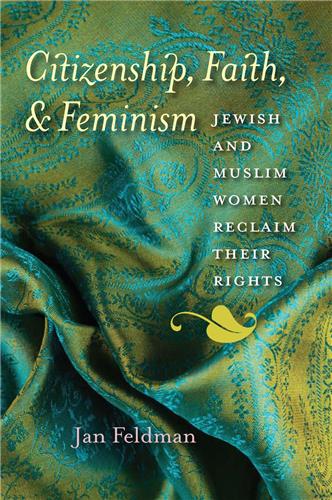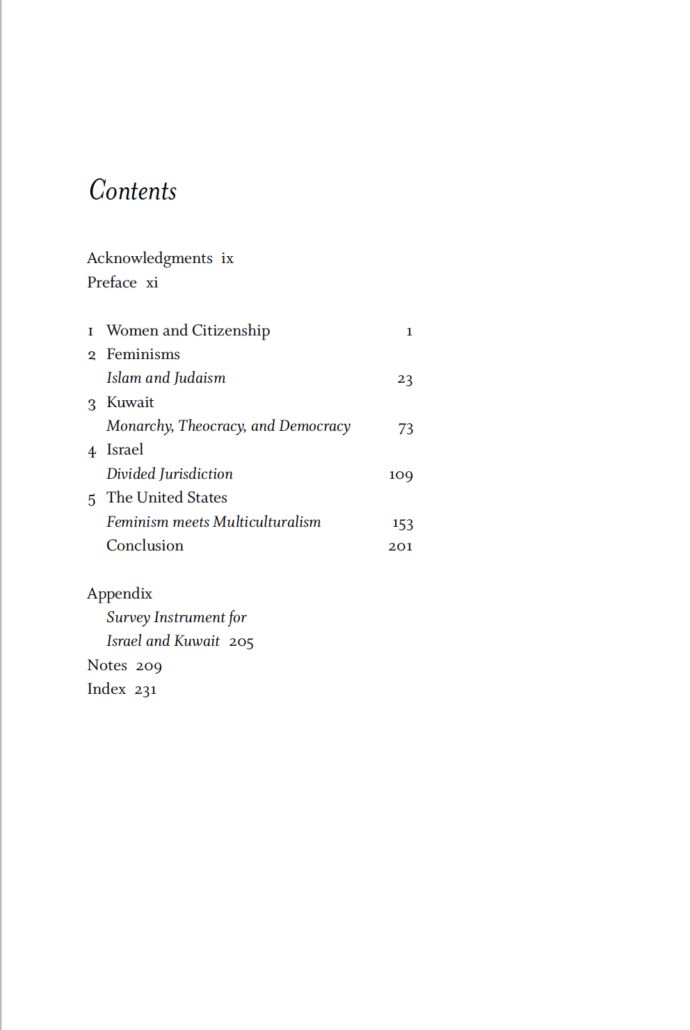Feldman’s Citizenship, Faith & Feminism is a unique text; of course, to Muslim and Jewish feminist scholars and activists the concerns highlighted within the text will not be new. However, the way in which Feldman draws commonalities between Islam and Judaism, and international comparisons between Israel, Kuwait, and the United States is distinct, particularly in light of the conflict between citizenship, religious identity, and multiculturalism. This is not to say that Feldman does not marginalise some complex and historical differences between the faiths, but this is perhaps a strength of Citizenship, Faith & Feminism. Indeed, Feldman does not pretend to have the answers and is right to claim that “Recapturing the promise of gender justice embedded in Judaism and Islam is an ongoing struggle” (71). Equally, Feldman is able to emphasise the fact that Jewish and Muslim feminists share similar concerns, aspirations, and even contexts. This includes the stark choices that Muslim and Jewish feminists make in deciding whether to endure injustice, suffer voluntary exile, or struggle within their communities using civil equality as a basis for reform. For Feldman, this is a common struggle “rooted in a desire [of Muslim and Jewish feminists] to see that G-d given justice prevails for our daughters” (204).





